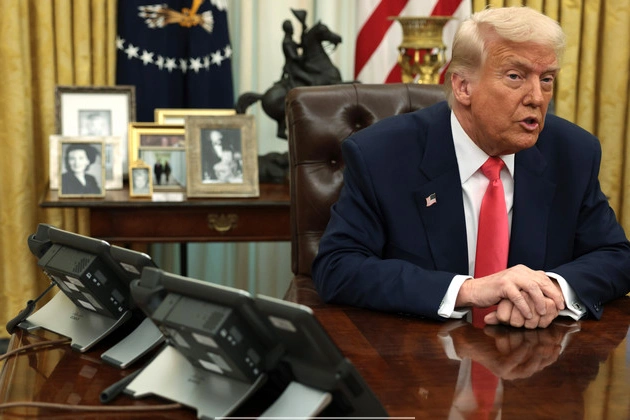
DOJ Can't Share Jack Smith's Report on Trump Classified Docs Case with Lawmakers, Judge Rules
A federal judge has blocked the Justice Department from showing selected lawmakers portions of special counsel Jack Smith’s report on the classified documents case against Donald Trump.
Legal Basis for Blocking Report
In a 14-page order Tuesday, U.S. District Judge Aileen Cannon, a Trump appointee, said there is no legal basis for the department to confidentially share the report with leaders of the House and Senate Judiciary Committees.
New Revelations in Smith’s Report
Cannon’s ruling could make it easier for the Trump administration to bury the report, which recounts Smith’s investigation into the classified records that Trump stored at his Mar-a-Lago home after his first term and his alleged attempt to obstruct efforts to retrieve them.
Some of the details of that criminal probe have emerged in court filings over the past two years, but the judge made clear that Smith’s report is jammed with new revelations about the now-defunct case against Trump.
“Much of this information has not been made public in Court filings,” Cannon wrote. “It includes myriad references … to interview transcripts, search warrant materials, business records, toll records, video footage.”
Resistance to Report Release
In the final days of the Biden administration, the Justice Department wanted to show the report to the small group of lawmakers, though not release it publicly. In recent decades, special counsels’ reports on their investigations have routinely been released to both Congress and the public.
Now that Trump has control of the department, he is expected to oppose any release of the report, including potential future efforts to make it public under the Freedom of Information Act. Cannon’s ruling provides new ammunition for Trump to keep it secret, at least in the short term.
Future Implications and Legal Battles
A separate volume of Smith’s report — detailing his investigation of Trump’s bid to subvert the 2020 election — was made public last week.
But releasing the volume on the documents case was more complicated, because the Justice Department — at least under former Attorney General Merrick Garland — was still seeking to revive charges in that case against Trump’s two former co-defendants, Walt Nauta and Carlos De Oliveira.
The charges against Trump himself were dismissed in both of Smith’s cases after Trump won the 2024 election.
Challenges in Disclosing the Report
In blocking lawmakers from seeing the documents report, Cannon wrote that Congress hadn’t subpoenaed it, requested a confidential review or identified legislation that would be aided by accessing Smith’s findings. Though the department has, in recent years, quickly shared the findings of special counsel investigations with lawmakers, Cannon said doing so in this case would result in a “reasonable likelihood” of “public dissemination.”
Cannon repeatedly slammed Garland and his subordinates, saying their claims about the need to show the report to Congress don’t hold water.
It’s unclear how long Cannon’s block on disclosure of the report will remain in place. Last July, Cannon dismissed the classified documents case that Smith brought against Trump and two co-defendants (both of whom were accused of helping Trump obstruct justice). She concluded that Garland’s appointment of Smith was illegal, even though attorneys general of both parties have used the same or similar mechanisms to appoint special prosecutors in politically sensitive cases.
The Justice Department appealed the dismissal, seeking to restore the charges against all three men. However, after Trump won the election last November, officials dropped the effort to reinstate the charges against Trump, while continuing to press to revive the case against his two co-defendants.
Future Legal Scenarios
Trump appointees at the Justice Department are expected to drop that appeal entirely. But abandoning the case against Nauta and De Oliveira could eliminate a key legal rationale for keeping the report secret — namely, the argument that releasing the report could jeopardize the ability of the two men to get a fair trial.
Cannon’s order will also likely frustrate, for now, efforts to make the report public through FOIA. She said DOJ cannot disseminate the volume on the documents case to anyone at least until the appeal is over, and she raised the prospect that she will maintain the block even after the appeal, in order to make sure the report doesn’t contain grand jury secrets or information subject to attorney-client privilege.
Conclusion and Lasting Implications
Cannon held arguments on the issue in her Fort Pierce, Florida, courtroom on Friday. During the hearing, she signaled she was deeply skeptical of the Justice Department’s request to share the report with lawmakers. By delaying her ruling until now, she essentially ran out the clock on the Biden administration’s ability to appeal.















